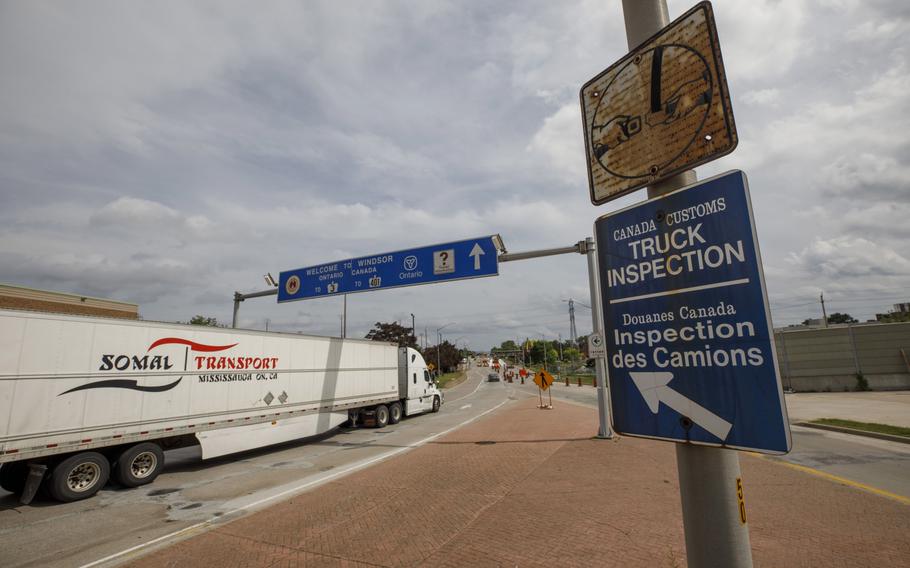
Trucks cross the Ambassador Bridge from Detroit into Windsor, Ontario, on May 26, 2021. (Cole Burston/Bloomberg)
Non-essential travel between the U.S. and Canada will be banned for another month despite mounting pressure from businesses to ease COVID-19 travel restrictions.
Justin Trudeau’s border chief announced an extension of the current border rules until at least July 21 in a tweet Friday morning. The world’s longest undefended border has been closed to most travel since March 2020, when it was shut in an effort to stop the spread of the coronavirus.
Public Safety Minister Bill Blair also said restrictions on travel to other countries would continue, but added the Canadian government would begin to flesh out planned exemptions for fully vaccinated travelers on Monday.
Friday’s announcement comes as airlines, tour operators and other businesses plead with governments on both sides of the border to start reopening, with the vital summer season about to begin.
“It’s disappointing because it flies in the face of science and is unfair to Canadians who are being denied the ability to travel, and it’s obviously very damaging to us economically as well,” Perrin Beatty, president of the Canadian Chamber of Commerce, said in a phone interview. “It’s another nail in the coffin for the the summer tourism season for Canadians.”
The tourism industry has been one of the hardest hit sectors from the pandemic travel restrictions. The Canadian side of Niagara Falls, in Ontario, saw total visitors drop by half last year, and businesses are desperate not to lose another season.
“We welcome 14 million visitors a year, and of that 30% come from the U.S. We know with the border closed, that 30% has gone to zero,” Janice Thomson, president of Niagara Falls Tourism, said by phone, adding the region saw under 8 million visitors in 2020.
Now that vaccines are being administered widely in both the U.S. and Canada, business groups are asking for a clear plan on how the border will reopen.
Vaccination rates are one of the key benchmarks Trudeau’s government is considering before allowing more non-essential travel. About 65% of Canadians have received their first dose, according to data compiled by CTV News, while the Bloomberg Vaccine Tracker shows 53% of U.S. residents have had a single shot.
Canada’s decision to prioritize first doses, however, has created a gap on full vaccinations: about 45% of Americans have had two doses, compared to just 16% in Canada.